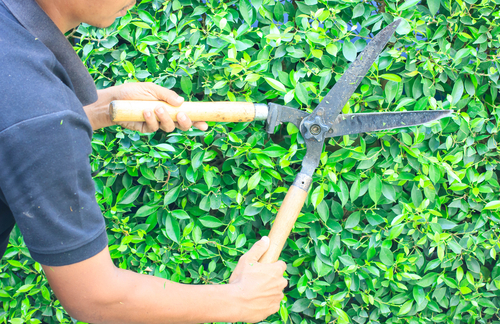The role of caregiver is becoming the norm rather than the exception. As life expectancy increases, so does the need for a caregiver. You may just be helping Mom and Dad with the “heavy” chores like mowing the lawn or shoveling snow, or your parent, spouse, or family member may have advanced Alzheimer’s and require around the clock assistance.
Regardless of how much assistance your family member requires, it will be a challenge at times to develop a caregiver schedule to fit it all in. The following tips can help you to get through your multiple hats and survive!
1. Define roles. If you have other family members who will share caregiving with you, it is important that everyone is clear on what they are taking responsibility for. A family meeting is a good way to organize a caregiver plan of what help the caregivers will be providing and who is accountable for each thing. Remember that what is needed currently will continue to change over time. Everyone needs to be as flexible as possible and at the same time realistic.

If your job requires you to travel frequently, you should not be responsible for daily or even weekly tasks. On the other hand, you could be the person who takes care of the finances, which can be done using the computer.
2. Create organization. Keep an evolving list. Any task that needs to be done is on the list. Star the ones that needs to be prioritized. Remove tasks as they are completed. Have a list that is just for you and the tasks you are accountable for, but also a “honey do” list of things that anyone could do and post it in the home.
Your “honey do” list can include things like replace a lightbulb in a ceiling fixture, trim the bush by the front door, or replace the furnace filter. These should be one-time tasks that pretty much anyone can do. These lists can be a great help for the caregiver’s time management.
3. Ask for help. Don’t be afraid to ask friends or relatives to help with simple tasks like take Mom for her hair appointment or dental check-up. It’s one less thing for you to do. They may be more comfortable and more willing to take on a task with a defined start and finish time.
4. Arrange for time off. You will need to recharge your batteries. You can’t function if you don’t have some time for yourself. Include a daily time that you can have for yourself into your caregiver schedule. Even if it means getting up earlier in the morning, that cup of coffee or tea out on the patio before you start your day can be invaluable.
Check with your church or the senior center for volunteers that will sit with the person you care for. It gives you a chance to have lunch with a friend, go for a walk, or read a book a couple times a week. Make sure you have at least one full day a week off. Either have family members take turns caregiving or hire an assisted living service.

5. Plan meals. You may only need to provide the main meal of the day. Some families arrange for Meals on Wheels to bring the dinner meal each day. Others decide to provide the meals themselves.
If the person you care for can use a microwave oven, you can invest in some good meal-sized freezer containers and make a week’s supply of meals at one time. If you are cooking in the home, make use of the old standby, the crockpot. All the prep for the meal can be completed early in the morning, and you can forget about it until it is time to serve dinner.
Keep the ingredients available for a quick meal that does not require a lot of preparation time. That way, if things don’t go as planned and you need to get a decent meal on the table quickly, you are prepared with several time management options.
6. Hire help. Consider hiring help like a cleaning service or a lawn-mowing service. These are chores your elderly family member may not be able to do any longer. Consider offering the job to a teenage grandchild. They will be happy to earn the money, and it might be more comfortable for grandma and grandpa to admit that they can’t do the job anymore.

7. Arrange respite. A good home care service is an invaluable assistance. Even if you are the primary caregiver, what happens if you should become ill or injured unexpectedly? Maybe you need to be out of town, or you are going on a vacation. You need someone who can step in and take over care if necessary.
Once you have chosen the at-home caregiver service, have them care for your elderly person at least once a month so that they can be up to date on any changes that have occurred with their elderly patient’s needs.
If you can use any of these suggestions, you will stay more organized and less stressed.

